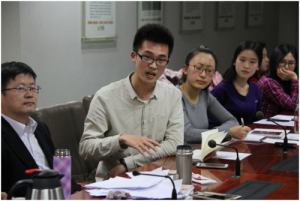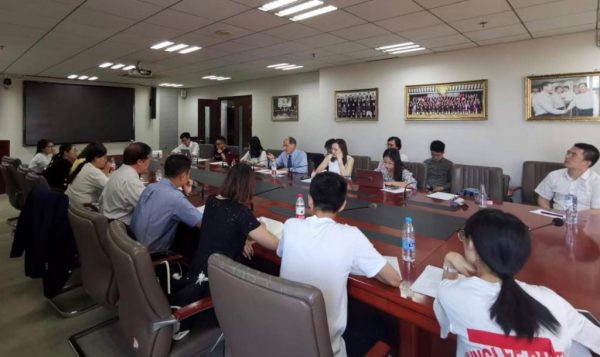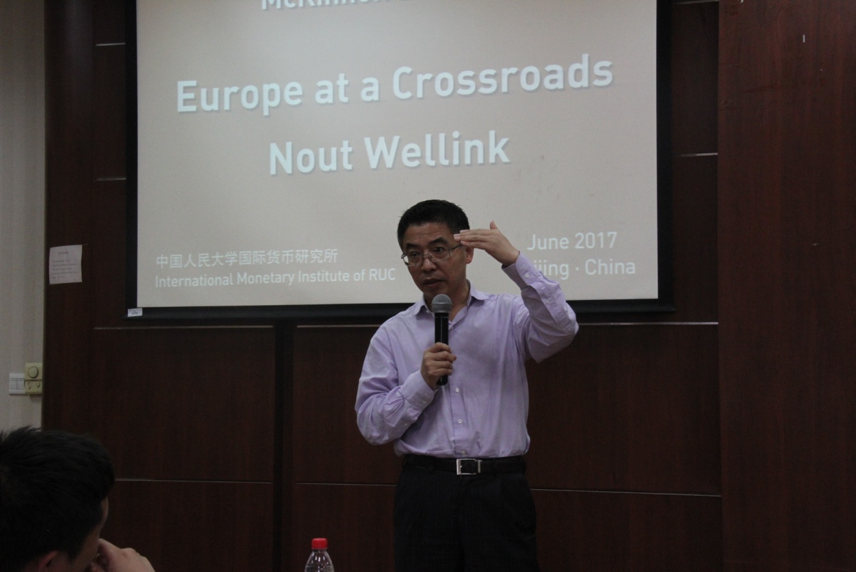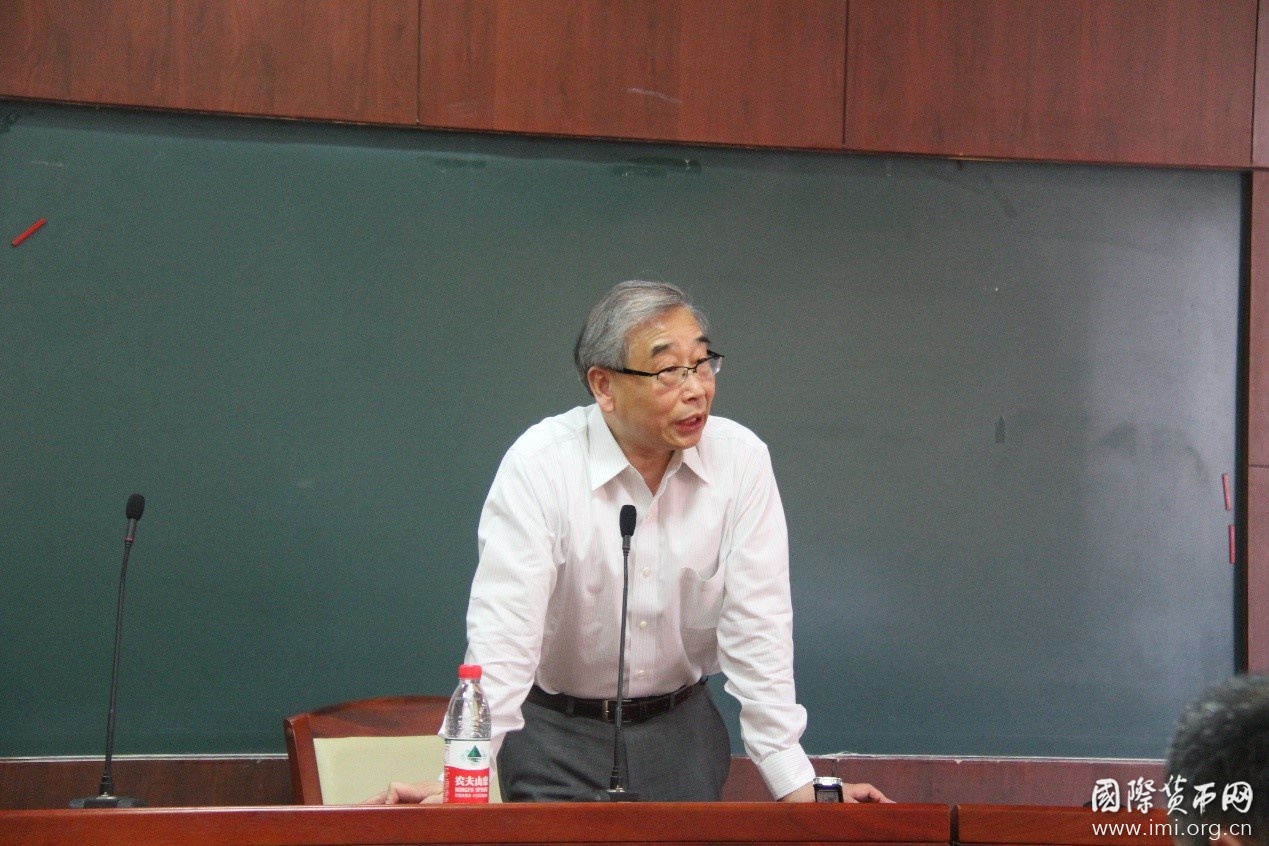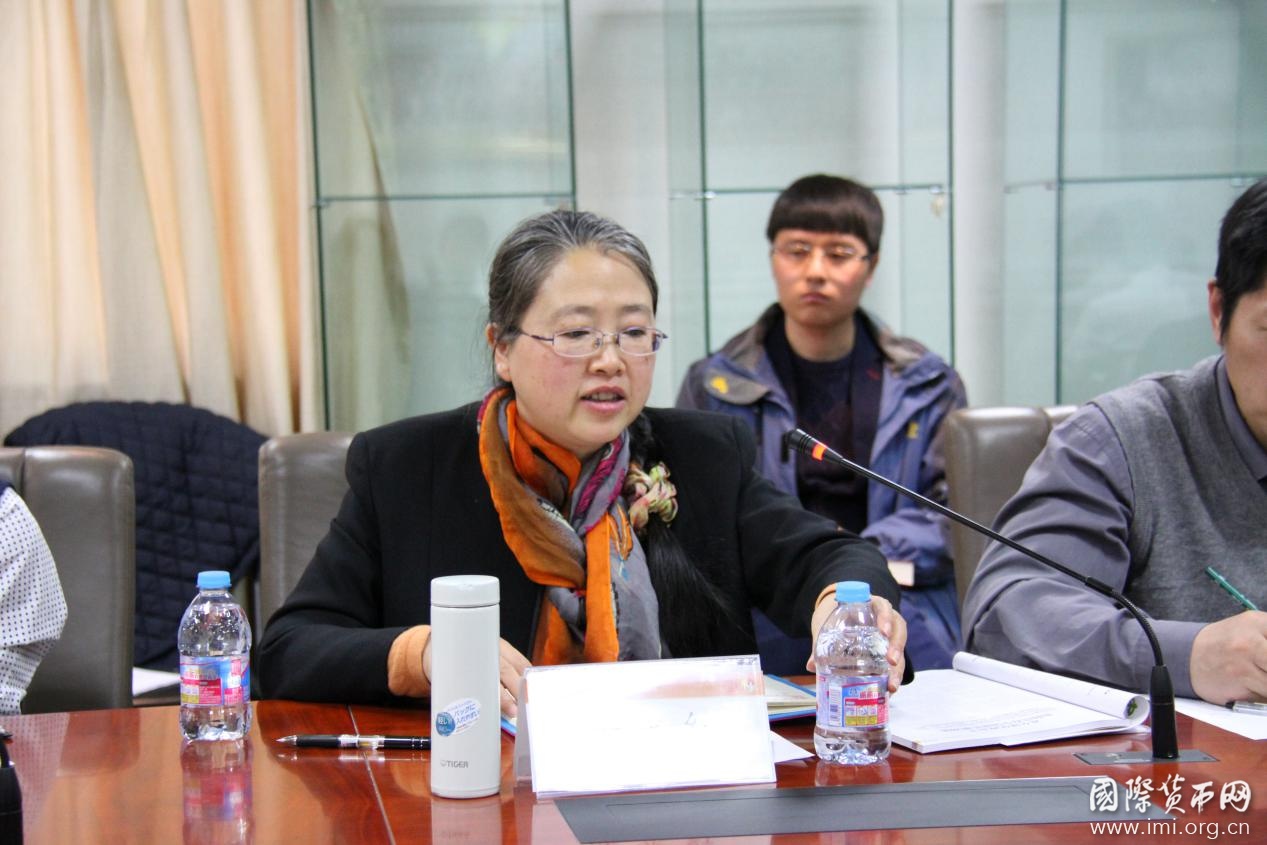McKinnon Lectures (No. 9): The Eurozone Outlook in the New Global Environment: Brexit, Trumponomics, Japan and China
2016-12-01 IMI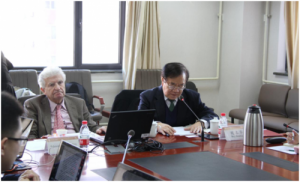 Speaking of the impact of Brexit, Mr. Alphandery pointed out that, according to the economic estimates, in the next five years, the United Kingdom’s GDP will drop by 2.5%, and inflation rate will rise by 2%. Meanwhile, because Britain’s proportion of exportation is relatively low for countries outside the Eurozone, Brexit will not impose too much impact on these non-Euro countries. But generally speaking, Brexit is inimical to free trade and globalization, as well as the free flow of factors of production.
Speaking of the impact of Brexit, Mr. Alphandery pointed out that, according to the economic estimates, in the next five years, the United Kingdom’s GDP will drop by 2.5%, and inflation rate will rise by 2%. Meanwhile, because Britain’s proportion of exportation is relatively low for countries outside the Eurozone, Brexit will not impose too much impact on these non-Euro countries. But generally speaking, Brexit is inimical to free trade and globalization, as well as the free flow of factors of production.
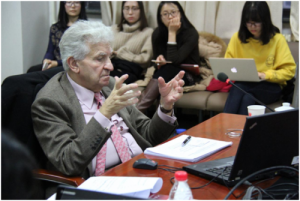 As to the influence of Donald Trump’s election as the President of the United States, Mr. Alphandery said, Trump claimed to implement protectionist trade policy, and China is likely to bear the brunt of it. On the other hand, because China’s chief export destinations are emerging economies, and China is also likely to counter the US in automobile and mobile industries. Thus China still has certain competitive edge in international trade. In his opinion, seen from the history, the trade protectionism that Trump promised is not acceptable, and meanwhile Trump’s plans to cut taxes for enterprises and the rich and increase public spending may as well lead to overheated economy, thus inducing inflation.
By comparing different economic indicators, Mr. Alphandery believed that China’s economy does not confront major risks and will not fall into the liquidity trap that once trapped Japan. He pointed out that China is now at an optimistic transition period in which the manufacturing sector declines while the services sector rise, the debt scale is under control, and the gap between savings and investments is gradually narrowing. Meanwhile, Chinas’ quantitative currency policies help stimulate demand and the reforms in SOEs help facilitate economic transition, ensure employment, and ease overcapacity.
For the Eurozone forecast against the new global situation, Mr. Alphandery held that generally speaking, the Eurozone crisis is over, so all countries should proactively pursue reforms and create a favorable environment for investments. He specifically analyzed that although in the Eurozone the bank lending to the private sector is sluggish and overdue non-performing loans are inclined to mount; the unemployment rates in some countries have dropped; the economic growth begins to rebound; the deficits are under control; and the capital adequacy ratio is rising.
As to the influence of Donald Trump’s election as the President of the United States, Mr. Alphandery said, Trump claimed to implement protectionist trade policy, and China is likely to bear the brunt of it. On the other hand, because China’s chief export destinations are emerging economies, and China is also likely to counter the US in automobile and mobile industries. Thus China still has certain competitive edge in international trade. In his opinion, seen from the history, the trade protectionism that Trump promised is not acceptable, and meanwhile Trump’s plans to cut taxes for enterprises and the rich and increase public spending may as well lead to overheated economy, thus inducing inflation.
By comparing different economic indicators, Mr. Alphandery believed that China’s economy does not confront major risks and will not fall into the liquidity trap that once trapped Japan. He pointed out that China is now at an optimistic transition period in which the manufacturing sector declines while the services sector rise, the debt scale is under control, and the gap between savings and investments is gradually narrowing. Meanwhile, Chinas’ quantitative currency policies help stimulate demand and the reforms in SOEs help facilitate economic transition, ensure employment, and ease overcapacity.
For the Eurozone forecast against the new global situation, Mr. Alphandery held that generally speaking, the Eurozone crisis is over, so all countries should proactively pursue reforms and create a favorable environment for investments. He specifically analyzed that although in the Eurozone the bank lending to the private sector is sluggish and overdue non-performing loans are inclined to mount; the unemployment rates in some countries have dropped; the economic growth begins to rebound; the deficits are under control; and the capital adequacy ratio is rising.
